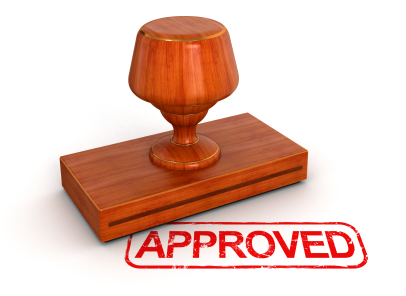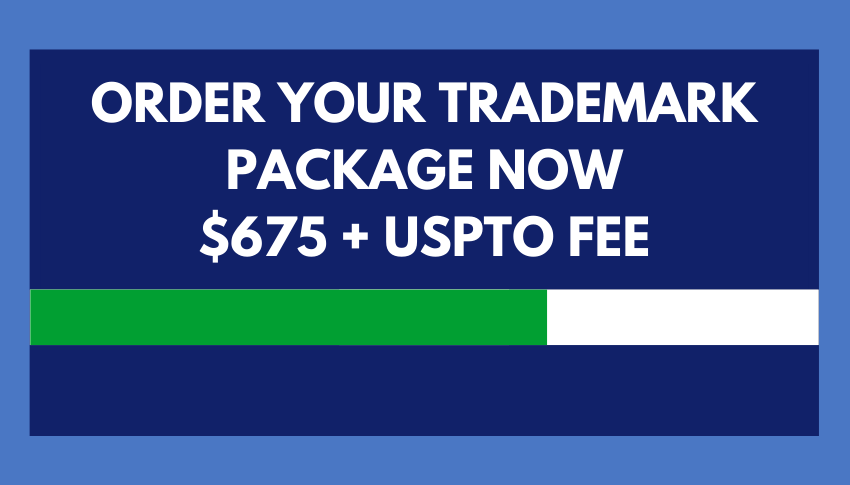Navigate the USPTO Process with Confidence/h2>
Flat Fee Trademark attorneys explain trademark office actions and responses and how they can affect your business if they are not dealt with correctly.
- The U.S. trademark registration process can be complicated and full of potential landmines for the uninitiated navigating the process alone.
- One of the upsides to working with an experienced trademark attorney is that you will likely avoid most of these errors and pitfalls.
- It is not unusual to find yourself on the receiving end of a Trademark Office Action from the USPTO Examiner assigned to your trademark application.
What is a Trademark Office Action
- The USPTO and its team of Examiners issue Trademark Office Actions as a standard part of the trademark application review process.
- A Trademark Office Action may be for a non-substantive issue, such as a request for additional information, disclaimer or clarification in the trademark application, or it may be a substantive Action barring registration for any number of issues, including likelihood of confusion with a registered mark or lack of sufficient distinctiveness.
- The trademark attorneys at Flat Fee Trademark may be able to assist you in overcoming common Office Action refusals at the USPTO so your trademark application can proceed to registration.

Common Office Action Refusals
Some common reasons your trademark application may be refused registration at the USPTO include:
- Likelihood of Confusion – Your mark conflicts with a similar registered trademark, or a prior pending application and may create a likelihood of confusion among potential consumers if both marks are allowed registration.
- This is one of the most common substantive refusals that we see. If someone else has registered your identical trademark, or something very similar, for related goods or services, the USPTO will bar registration of your mark unless and until you present persuasive arguments why your mark should be allowed registration.
- A comprehensive trademark search, ideally one conducted by an experienced trademark attorney who knows what to look for, usually reduces the likelihood of your mark conflicting with a prior pending or registered trademark.
- If your mark is comprised of several words but contains one or more descriptive elements, the Examiner may permit registration of the mark with a disclaimer of the descriptive or generic term(s).
- Under current U.S. trademark law, a mark is considered merely descriptive if it describes an ingredient, quality, characteristic, function, feature, purpose or use of the specified goods or services.
- If your mark is geographically descriptive.
- If your mark is geographically deceptively misdescriptive.
- The USPTO is exacting when it comes to trademark specimens. If your specimen differs in any way from the drawing of your mark shown in the trademark application or the goods or services specified, the Examiner may refuse registration on the basis of an improper specimen.
- This is a non-substantive refusal that can usually be overcome by submitting a proper, matching specimen.
- Merely Descriptive or Genericness – If your mark lacks sufficient distinctiveness when used in connection with your proposed goods or services, the USPTO may refuse registration based on mere descriptiveness.
- Geographic Significance – There are two bases on which the USPTO may refuse registration based on geographic indicators,
- Improper Specimen – The USPTO may refuse registration of your mark if the specimen submitted to show use of your mark in commerce fails to exactly depict the mark as submitted for registration or doesn’t match the goods or services listed in the application.
- If your mark includes a geographic region or location and the goods actually originate from that region, and the purchasing public is likely to believe that the goods originated from that region, your mark may be refused registration based on geographic descriptiveness (e.g., California Wine).
- On the other hand, if your mark includes a geographic indicator but the goods do not originate from the region, but the public is likely to believe they do originate from that region and that is an important part of their purchasing decision, then your mark may be deemed geographically deceptively misdescriptive. In both cases, the USPTO may refuse registration of the mark.
- Merely Ornamental – A common basis of refusal for t-shirts, mugs, keychains, stickers and other promotional materials involves marks that are merely ornamental.
- Based on the specimen submitted, the USPTO may find that the mark proposed for registration does not serve as a unique identifier but is being used in a merely ornamental or decorative way.
- To qualify for trademark registration, a mark must serve as a unique identifier of the source of your goods or services.
- If your mark is simply printed on the front of a t-shirt, or on a bumper sticker, it may not serve as a trademark and the USPTO may refuse registration of the mark.
Responding to Trademark Office Actions
- Once a Trademark Office Action is issued, you have three (3) months from the date of the Office Action to file a response addressing the issues raised in the Office Action.
- If you do not file a timely response within the 3-month period (or within the two-month grace period following the initial deadline), your trademark application will become abandoned.
- The trademark attorneys at Flat Fee Trademark have been highly successful in reducing the likelihood of our clients receiving USPTO Office Actions through our comprehensive trademark search service, which uncovers and highlights potential risks during the trademark process.
- We have also had high rates of success in overcoming USPTO Office Action refusals on behalf of our clients.
Discuss Your USPTO Office Action with Our Trademark Attorneys
Our trademark attorneys are available to assist you in responding to Trademark Office Actions. We offer complimentary consultations to discuss your Office Action and the likelihood of successfully overcoming the Examiner’s findings or basis of refusal.
Since Trademark Office Actions are different and unique for each application, please contact us for more information or for a quote on your specific Trademark Office Action, (800) 769-7790, or send us a message using the Contact Form.







